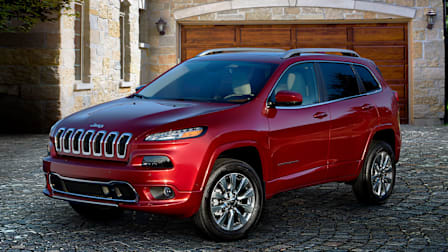Hyundai, Kia, and Genesis EVs Recalled to Fix Loss of Power While Driving
The recall comes after an investigation into and complaints about the ICCU, which is part of the vehicle’s electrical system

Hyundai, Kia, and Genesis are recalling over 146,000 electric vehicles because a faulty part may cause them to lose power while driving. The recalled vehicles include the 2022-2024 Hyundai Ioniq 5 and Kia EV6 hatchbacks and 2023-2024 Hyundai Ioniq 6 sedan, Genesis GV60 hatchback, Genesis GV70 Electrified SUV, and Genesis G80 Electrified sedan.
The problem has to do with the Integrated Charging Control Unit (ICCU), which sends power to low-voltage vehicle accessories and the 12-volt auxiliary battery. It’s kind of like the alternator in a gas-powered car. Due to a manufacturing issue, the ICCU might fail while the vehicle is in motion. If this happens, drivers may hear a “pop” noise. The vehicle will display warning lights on the dashboard and sound audible alarms as the vehicle loses power. According to documents provided by Hyundai, drivers should have between 22 and 45 minutes to pull over safely before the vehicle totally loses power. Airbags, brakes, and power steering will remain operational.
Hyundai, Genesis, and Kia EV ICCU Recall Details
Vehicles Recalled
• 2022-2024 Hyundai Ioniq 5 hatchbacks
• 2022-2024 Kia EV6 hatchbacks
• 2023-2024 Hyundai Ioniq 6 sedans
• 2023-2024 Genesis GV60 hatchback
• 2023-2024 Genesis GV70 Electrified SUV
• 2023-2024 Genesis GV80 Electrified sedan
The problem: According to Hyundai, the ICCU may experience electrical load conditions that can damage internal components and open the ICCU fuse. If this happens, the vehicle may lose drive power.
The fix: Dealerships will replace the ICCU software and, if necessary, the ICCU fuse or the entire ICCU, free of charge.
How to contact the manufacturer: Owners may contact Hyundai and Genesis at 855-371-9460, and Kia at 800-333-4542.
NHTSA campaign number: For Hyundai and Genesis vehicles, the NHTSA number is 24V204, and Hyundai’s own number for this recall is 257/021G. For Kia vehicles, the NHTSA number is 24V200, and Kia’s own number for this recall is SC302.
Check to see whether your vehicle has an open recall: NHTSA’s website will tell you whether your vehicle has any open recalls that need to be addressed.
If you plug your car’s 17-digit vehicle identification number (VIN) into NHTSA’s website and a recall doesn’t appear, it means your vehicle doesn’t currently have any open recalls. Because automakers issue recalls often, and for many older vehicles, we recommend checking back regularly to see whether your vehicle has had a recall issued.
Stay informed about recalls that might affect your vehicle using our Car Recall Tracker.
Create a free account now to become a CR member.




